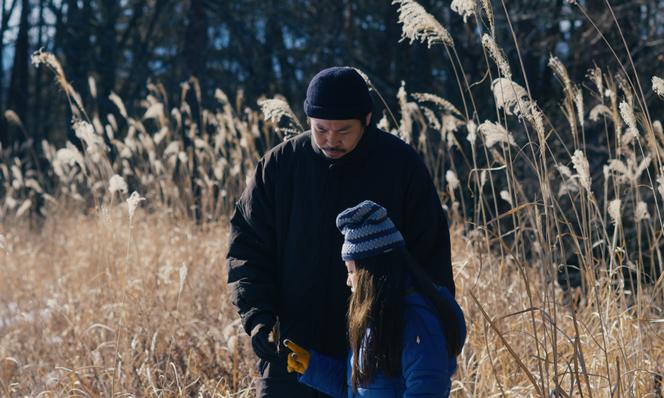


LE MONDE'S OPINION – MASTERPIECE
Once upon a time in the East... Evil Does Not Exist, the sweeping feature film by Japanese director Ryusuke Hamaguchi and winner of the Grand Jury Prize at the Venice Film Festival, is set somewhere between heaven and earth. After Asako I & II (2018), Wheel of Fortune and Fantasy (2021) and Drive My Car (2021), which won the Best Screenplay award at Cannes, one might wonder what more poignant and inventive narratives the director, born in 1978 and known for his distinctive portrayals of solitary souls, could conceive.
Hamaguchi astonishes the viewer by placing music at the center of his new fiction, alongside brilliant actors. It is worth noting that the film originated from the sound creation of composer Eiko Ishibashi, who also scored the soundtrack for Drive My Car. Hamaguchi films a wilderness setting two hours from Tokyo, where Ishibashi works, to capture the end of an enchantment. From the very first shot, the string instruments set a melancholic and repetitive tone, making the viewer feel it deeply even without dialogue or actors. The camera executes a dizzying tracking shot that points towards the treetops, maintaining this focus for four minutes."
This parade of branches and leaves already has us spinning when suddenly, a little girl appears in the middle of the forest, her eyes fixed upward, allowing us to interpret the opening shot: Hamaguchi was perhaps filming the child's gaze fixed on the canopy of trees. This opening, in which the music orchestrates the drama, is already impressive.
Evil Does Not Exist provides many more marvels throughout its utopian narrative that embraces the Western genre, as if Japanese filmmaker Hamaguchi were revisiting the foundational myths of his country, akin to the distant cousin of American Kelly Reichardt in First Cow (2019). Here, instead of a cow, the targets are deer, enigmatically present, with the camera continually seeking their tracks in the snow.
It's the story of a fragile paradise, sustained only by a clear, limpid stream that runs through a village inhabited by a few souls. Takumi (Hitoshi Omika), with his round face and mustache, lives there with his eight-year-old daughter, Hana (Ryo Nishikawa). A descendant of local pioneers, he has lost his wife. He divides his time between various outdoor tasks, never without his cap: chopping wood, filling canisters at the pure spring with the help of a friend who is a chef, a neo-rural working in an udon canteen.
After completing these tasks, Takumi allows himself a cigarette and drives to pick up his daughter from school, when he remembers. When he forgets, she walks home alone, taking the opportunity to wander through the woods in search of deer, whose gaze she sometimes meets from a distance. Her father always ends up joining her, and together, they make the journey back, naming the trees. Hamaguchi records this routine without lyricism: Hana learns to identify the vine-leaved maple as other children, raised in the city, learn to recognize the names of cars parked along the sidewalk. These are just two different worlds that are about to collide.
You have 45.96% of this article left to read. The rest is for subscribers only.
